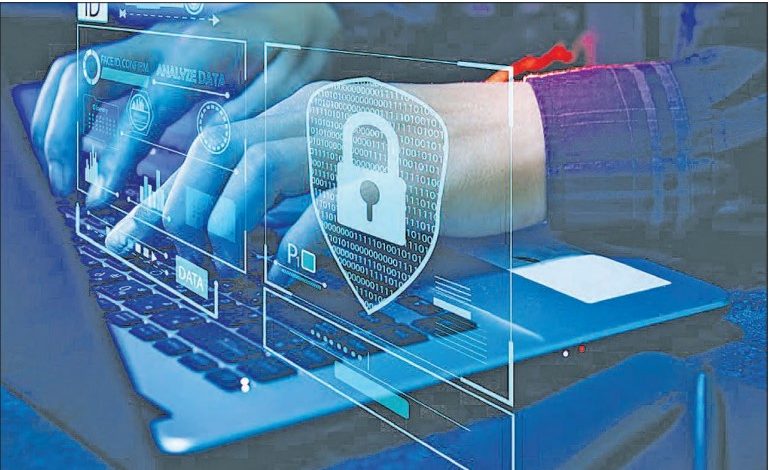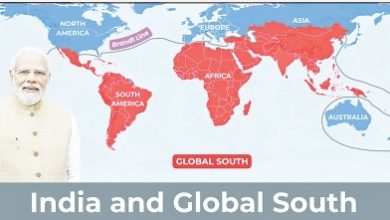Cybersecurity: Protecting our money, info online

PLATFORMS have become an integral part of our daily lives. Social media platforms connect us, e-commerce platforms give us access to goods and services and enterprise platforms help organisations to interact with us as consumers and process our transactions.
Tanzania is experiencing a profound digital transformation, marked by a rapid expansion of digital financial services that has significantly enhanced financial inclusion.
However, this rapid digitalisation has concurrently opened new avenues for sophisticated digital fraud and cybercrime, posing substantial threats to both individuals and businesses. Imagine waking up one morning and finding your mobile money balance is zero.
Or trying to log into the social media account (Facebook,Instagram etc) or Email account (Gmail,Yahoo,Hotmail etc) only to find that your account has been locked because someone else has used your details.These are not scenes from a movie, they are real situations happening to people in Tanzania today.
As our country becomes more digital, new opportunities come with new dangers. Cybersecurity simply means protecting computers, mobile phones and the internet from criminals.
Just as you lock your house at night to keep thieves away, cybersecurity is about locking your digital doors. It covers many things: Stopping people from stealing your money online, Protecting your personal details like National ID, Social Media Accounts, Bank or Mobile Money accounts and Making sure important services like electricity and hospitals keep working safely.
Regionally, the financial sector has been the primary target for cyberattacks across Africa, followed by telecommunications companies and government agencies.
This dual nature of digitalisation offering immense opportunities while simultaneously introducing significant vulnerabilities underscores a critical digital transformation challenge.
The rapid pace of digital adoption, if not adequately secured and accompanied by robust user education, directly fuels the rise in cybercrime by creating a larger attack surface and a pool of lessprepared victims.
ALSO READ: Pakistan pledges to strengthen trade, innovation ties with Tanzania
Within Tanzania’s financial services industry, a PwC’s Global Economic Crime and Fraud Survey 2018 identified “Fraud Committed by Consumer” as the most prevalent economic crime, with an incidence rate of 55 per cent, surpassing even traditional cybercrime in this sector.
This suggests a significant vulnerability stemming from user behaviour. Furthermore, mobile network frauds and attempts continue to rise, increasing by 33 per cent between December 2024 and March 2025, with 17,152 incidents reported in the January-March 2025 quarter.
Geographically, Morogoro and Rukwa regions are disproportionately affected, accounting for 74 per cent of reported committed and attempted frauds. In the past 10 years, Tanzania has moved fast into the digital age.
We send money by phone, pay taxes online, check exam results on the internet and even apply for passports without visiting an office. This progress is good for our economy but it also attracts criminals, both inside and outside the country.
The Tanzania Communications Regulatory Authority (TCRA) says cases of mobile money fraud, online scams, and hacking attempts have been increasing every year.
Cyber criminals use different tricks to steal or cause trouble: 1. Mobile Money Scams – A person calls pretending to be from a mobile company, asking for your PIN “to fix a problem.” Once you give it, they empty your account. 2. Phishing Messages – Fake SMS or emails that look official, asking you to click a link and “confirm your account.” 3. Hacking – Breaking into government or company systems to steal data or cause damage. 4. Ransomware – Locking your files and demanding payment to release them.
The Law is Watching. Tanzania has taken steps to fight cybercrime: National Cybersecurity Strategy (2022-2027) – main roadmap for protecting its digital space, critical infrastructure and citizens from cyber threats. Cybercrimes Act 2015 makes hacking, fraud and online harassment crimes.
Electronic Transactions Act 2015 guides safe online business and digital signatures.TZ-CERT – a special team that helps detect and respond to cyberattacks. Personal Data Protection Act (PDPA) regulates personal data protection, processing, data security, international transfers and breach notification. But laws alone are not enough, people must also know how to protect themselves.
The Biggest Targets Right Now: 1. Mobile Money.Almost every adult in Tanzania uses M-Pesa, Tigo Pesa, Airtel Money, Halo-Pesa or T-Pesa. This makes mobile money the number one target for cybercriminals.Real-life case: A Dar es Salaam shopkeeper lost 1.2m/- when she shared her PIN with someone claiming to be a “Telcom Operator agent.”
The caller said her account had a problem and needed “verification.” By the time she realised it was a scam, the money was gone. Safety tips: Never share your PIN, not even with a family member. Check messages carefully. Official companies don’t ask for PINs over the phone.
If unsure, hang up and call customer service directly. 2. e-Government Services.The government’s eGA (e-Government Authority) runs online services like tax filing, passport applications and health records.
These systems store sensitive personal data which criminals would love to steal.If hacked, criminals could: Create fake IDs in your name, Access your medical history and File false tax returns to steal refunds. Safety tips: Use strong passwords (mix letters, numbers and symbols). Change passwords regularly.
Avoid using public Wi-Fi when accessing government services. Artificial Intelligence (AI) is making life easier for many industries but criminals are using it too. AI can: Create very realistic fake messages and voices, Guess passwords faster and Scan systems for weaknesses automatically.
This means Tanzania must also start using AI for defence tools that can spot suspicious activity quickly before money or data is lost. Tanzania still has too few trained cybersecurity experts.
This is why the government, universities and private companies need to: Offer more training in cybersecurity and AI, Run awareness campaigns (like road safety, but for online safety) and Share information quickly when new threats appear. Cybersecurity is not just for experts, everyone has a role to play: Individuals – Keep phones updated, avoid suspicious links, use strong PINs. Businesses – Protect customer data, backup systems, train staff.
Government – Invest in stronger defences, cooperate with neighbours to track cross-border cybercrime. The internet is like a big neighbourhood. If one house is left open, thieves can break in and sometimes use it to attack other houses. By keeping our own “digital houses” safe, we also protect the whole community.
Protecting yourself on the front end is much easier than trying to resolve a breach of your information. Once your information has been compromised, you will need to invest a lot of time and energy to contact the authorities and dispute charges. Practicing some of the steps outlined here can help you start thinking about the topic and formulate a plan for the long term.
Tanzania’s digital growth is a success story we should be proud of. But just as we build stronger roads and bridges, we must also build strong cybersecurity walls.
Because in the digital world, a single careless click can cost more than a break-in at your shop.If you get suspicious calls, messages, or emails, report them immediately to your mobile operator or TZCERT. A safer Tanzania starts with each of us.





